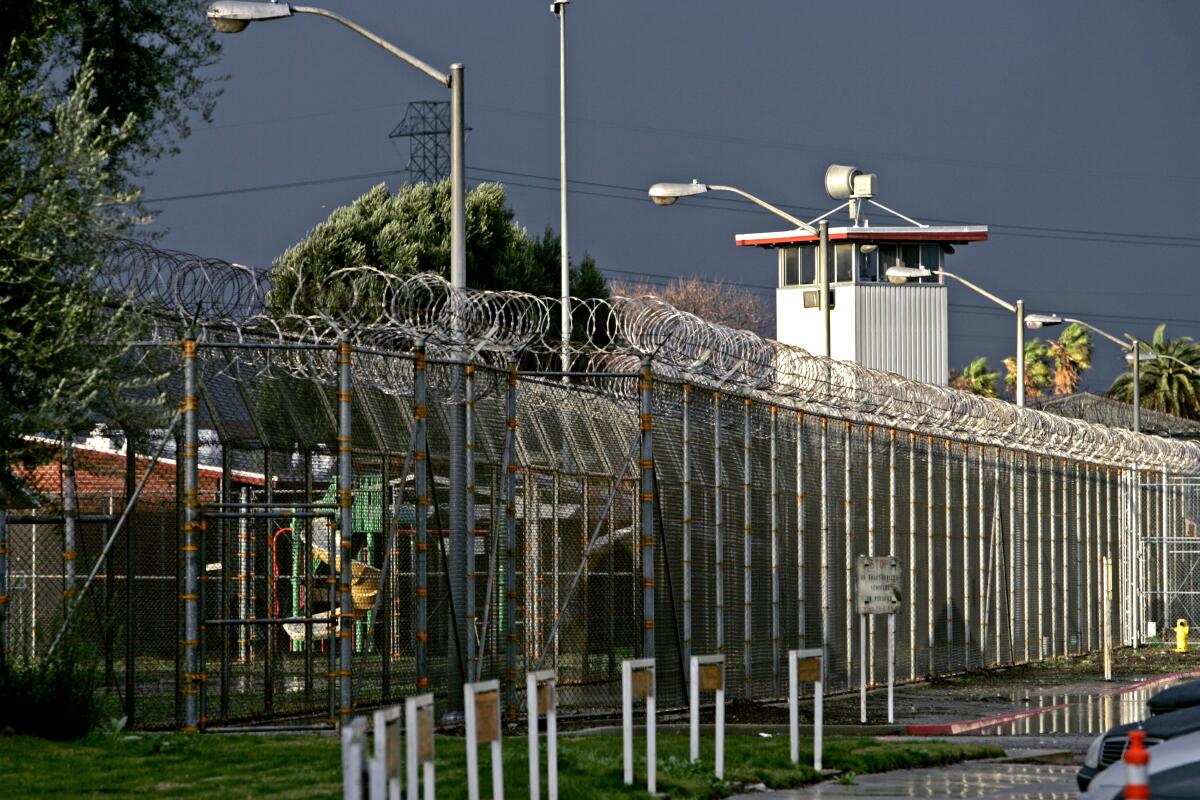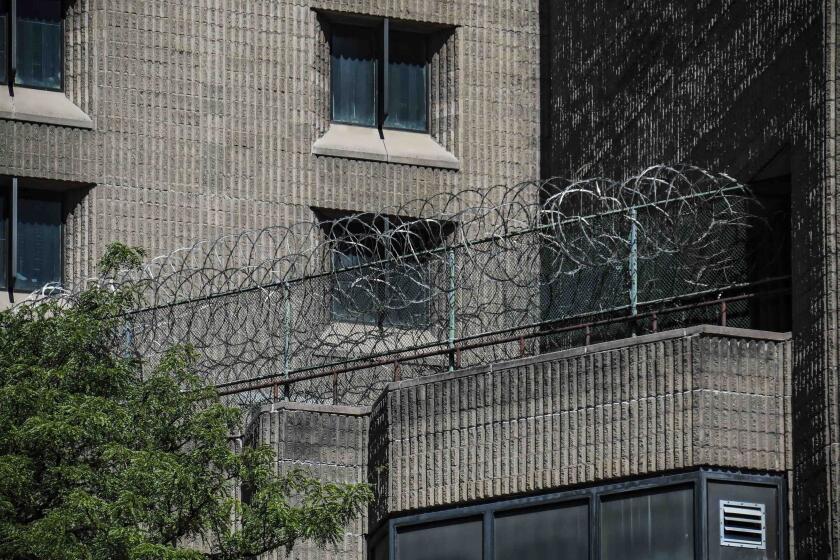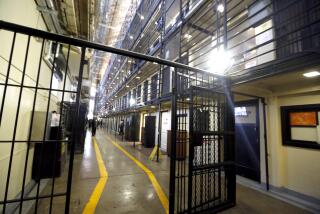California prisons to begin accepting inmates as coronavirus deaths mount in Chino

- Share via
After a two-month hold on the intake of new inmates amid the coronavirus pandemic, California’s prisons are expected to resume processing next week.
The California Department of Corrections and Rehabilitation will begin accepting prisoners May 26 for the first time since Gov. Gavin Newsom suspended their intake in March.
“We are targeting May 26 to resume county jail intake; however, this will be a finely measured process with CDCR and CCHCS [California Correctional Health Care Services] institution operations, public health, and health care experts working very closely together in real-time to make housing, movement, and transportation decisions,” Dana Simas, the department’s press secretary, said in a statement to The Times.
“We will also work closely with our local partners, as the health and safety of all those who live and work in our state prisons remains our top priority,” Simas said.
More than 3,500 prisoners have been released as the state sought to socially distance inmates in an effort to help stem the spread of the virus.
The lack of intake in state prisons for the past two months further reduced the number of prisoners by 6,000, according to statements made in recent federal court hearings.
But for those inmates still inside, outbreaks of the virus have gripped prison populations across California and the nation.
Lawmakers are joining prisoners’ advocates who are alarmed by the government’s response to the growing coronavirus crisis behind bars.
A sixth prisoner died Monday at the California Institution for Men in Chino, where 597 inmates have tested positive.
Corrections officials said the man, who was not identified, died at a hospital in San Bernardino County.
The prison reported its first death on April 19. But in the past month, the virus has rapidly spread through the prison, which has a mostly dormitory-style setting that does not allow for social distancing of inmates. About 90% of the inmates have been tested for the coronavirus.
The Chino facility has one of the largest outbreaks of COVID-19 cases among state prisons, with nearly two-thirds of the more than 900 inmates testing positive, according to Department of Corrections data. Of those, 130 have recovered.
In addition, 53 of the prison staff have tested positive and 32 have recovered and returned to work.
There have also been outbreaks at federal prisoners in California, where a combined total of 1,775 inmates have been infected at Lompoc and Terminal Island and 10 prisoners have died.
A three-judge federal panel and a single federal judge have rejected moves by lawyers seeking more releases for inmates in a long-standing legal fight over overcrowding and medical treatment. According to a court filing by the state, 108,850 inmates were housed in the state’s 34 adult institutions as of May 13, which is 127.9% of design capacity.
A look at how California’s jails are confronting the pandemic, and how those released from custody face new challenges.
At the California Institution for Women, which is also in Chino, 105 inmates and four staff members have tested positive for COVID-19.
About 400 female inmates have been tested at the facility, which is now quarantined. A 120-bed housing unit has been opened to hold asymptomatic inmates, according to the Department of Corrections.
The California Coalition for Women Prisoners said Tuesday that inmates testing positive have been cut off from communications and don’t have access to clean water.
Corrections officials say that medical staff are now conducting surveillance testing in all state prisons to detect outbreaks in their early phases before symptoms become obvious. The prisons also are planning a volunteer testing program when they have enough test kits, officials said Tuesday.
More to Read
Sign up for Essential California
The most important California stories and recommendations in your inbox every morning.
You may occasionally receive promotional content from the Los Angeles Times.













